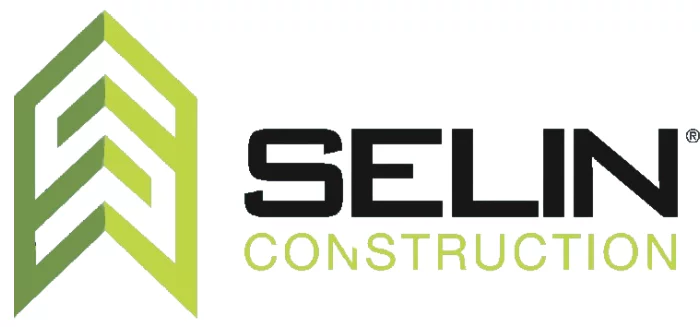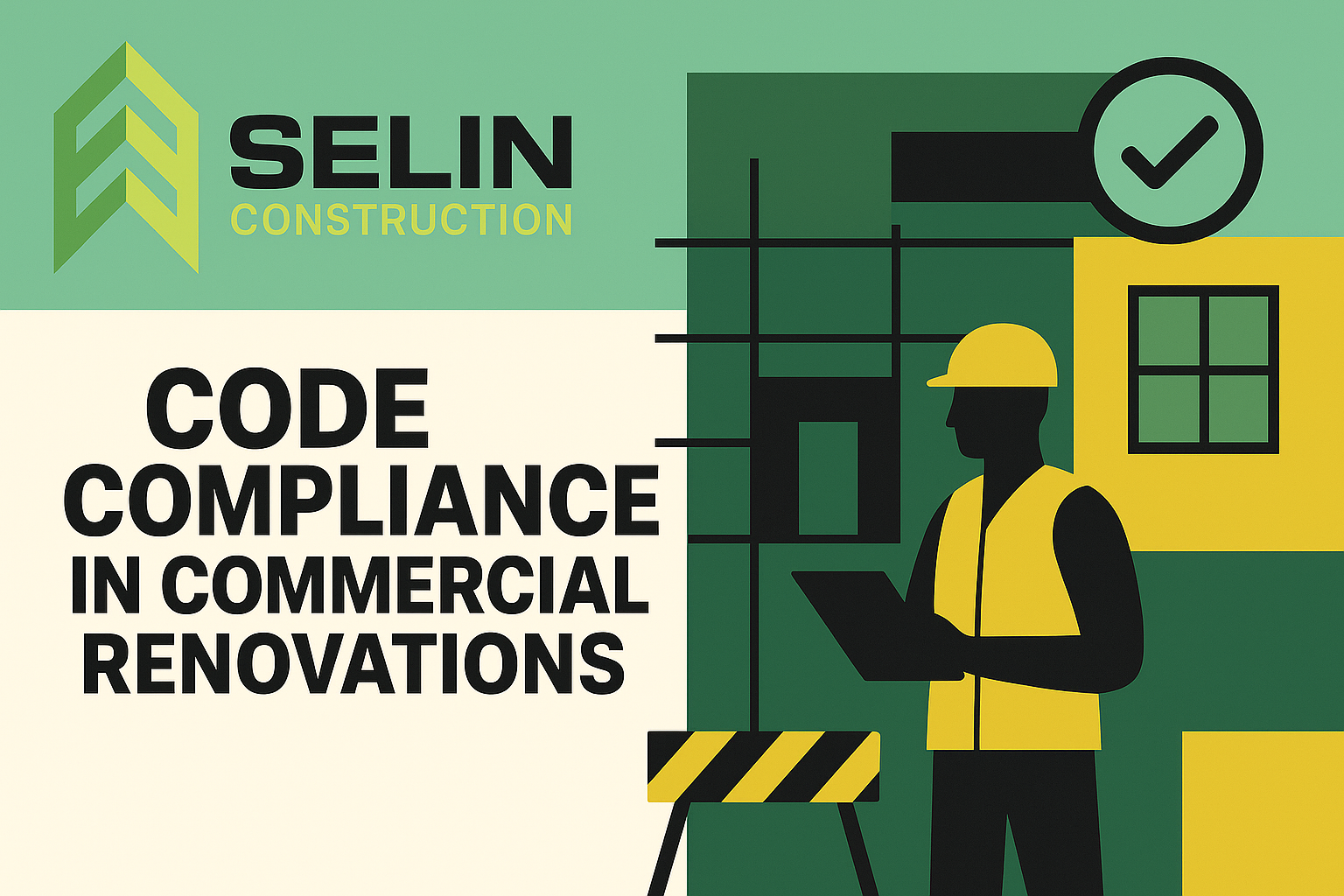|
Getting your Trinity Audio player ready...
|
Renovating a commercial property involves more than design upgrades and new finishes. Every project must follow strict code compliance standards to ensure safety, accessibility, and long-term value. Ignoring these rules can lead to costly penalties, project delays, or even forced closures. That’s why working with a professional team like Selin Construction LLC is crucial for smooth, compliant renovations.
Why Code Compliance Matters
Code compliance in commercial renovations is about meeting legal requirements that protect both occupants and property owners. These codes cover:
-
Safety Standards: Fire exits, sprinklers, alarms, and structural integrity.
-
Accessibility: Features that meet ADA requirements, such as ramps and restrooms.
-
Energy Efficiency: Regulations for insulation, lighting, and HVAC systems.
-
Health Regulations: Ventilation, sanitation, and water systems.
Each factor directly impacts occupancy approvals and overall building safety.
Key Areas of Commercial Renovation Compliance
Building Permits and Inspections
Every commercial project requires proper permits. Local authorities must inspect the property before, during, and after renovation. Missing a permit or failing inspection can result in fines and delays.
👉 Tip: Start with a contractor who understands the permitting process from day one to avoid costly project interruptions.
Fire and Safety Systems
Fire codes are among the strictest regulations. Upgrades may include sprinkler installations, fire-rated doors, or emergency lighting. Meeting these standards is non-negotiable for business operations.
Accessibility Upgrades
ADA compliance ensures your building is usable for everyone. Renovations often involve accessible entrances, restrooms, and signage. This isn’t just a legal requirement but also an important business consideration.
Electrical and Mechanical Systems
Old wiring, outdated panels, or inefficient HVAC systems often need replacement. Modern systems must meet both safety codes and energy guidelines, which can reduce utility costs long-term.
Environmental and Energy Codes
Many cities require eco-friendly updates during renovations. From low-flow plumbing fixtures to improved insulation, these updates help reduce energy use and may qualify for tax incentives.
If you’re planning a large project, it’s best to partner with experts who specialize in multifamily and commercial renovation. Their knowledge ensures every upgrade meets today’s compliance standards.
Common Challenges in Code Compliance
-
Changing Regulations: Codes are frequently updated, requiring expert knowledge.
-
Project Delays: Waiting on inspections or approvals can stall progress.
-
Hidden Issues: Older buildings often reveal structural or electrical problems mid-project.
👉 Solution: Hire a renovation team that manages inspections and approvals on your behalf, keeping your project on schedule.
How Professional Guidance Makes a Difference
A skilled renovation contractor manages the compliance process from start to finish. They coordinate with inspectors, secure permits, and oversee upgrades according to local requirements. This not only saves time but also protects property owners from expensive mistakes.
📞 Ready to simplify your renovation? Contact Selin Construction LLC today and let our team handle code compliance so you can focus on your business.
Conclusion
Code compliance is the backbone of any successful commercial renovation. From fire safety to ADA accessibility, every requirement matters. Working with experts ensures your property remains safe, efficient, and ready for use without legal complications.
✅ Looking for a trusted contractor who understands every aspect of compliance? Explore Selin Construction’s expertise in multifamily and commercial renovation and schedule your consultation today to start your project the right way.
FAQs
What does code compliance mean in construction?
Code compliance means meeting all building regulations and safety standards required by local, state, and federal laws during construction or renovation.
Who enforces building codes?
Local building departments enforce codes through inspections and approvals. They ensure all renovations meet legal and safety requirements.
Why is ADA compliance important in commercial renovations?
ADA compliance is required by law and ensures equal access for people with disabilities. It also helps businesses avoid lawsuits and penalties.
What happens if a renovation doesn’t meet code?
Non-compliance can result in fines, failed inspections, mandatory rework, and even business closures until corrections are made.
Do older buildings have to follow modern codes?
Yes, when older properties undergo renovations, upgrades must meet current building codes, especially in areas like safety and accessibility.


